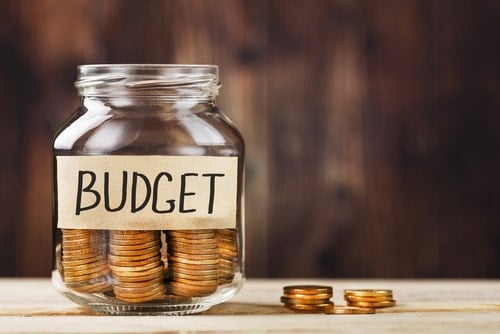
Part of being a successful landlord is preparing for all necessary and unexpected rental property expenses. However, for new landlords or investors, this is easier said than done. When it comes to determining income and profits, there are plenty of helpful online ROI calculators. That said, estimating expenses involves many variables that landlords can easily miss. Continue reading below as we help you tally up common rental property expenses and explain how to prepare for emergencies, and save a little money along the way.
How to Estimate Possible Rental Property Expenses
Monthly expenses, either planned or unplanned, will inevitably cut into your profits. So, estimating rental property expenses is an important part of deciding whether an investment property is a viable option before you buy. Check out these tips below for how to estimate common expenses.
Talk to Local Industry Professionals
If you are new to the industry or just looking for some local advice, reach out to the professionals. Consider talking to your realtor or getting in touch with a reputable property management company. Real estate professionals and property managers have the inside scoop on common issues landlords face. Furthermore, many companies are more than happy to help, especially if you are interested in property management services. So, building a relationship with a property management firm early on may help you find the right representation for your rental – as well as answer your questions.
Contact Utility Companies
Utility costs are a large monthly expense in a home. Therefore, contact local utility companies to see what the historical billing has been. Even if they cannot provide specifics, they should at least provide an estimate to help you in calculating rental property expenses. Also, some applicants will want to know this information as well. So, passing this along to your tenants will aid them in determining the affordability of your listing.
Build Relationships with Trusted Contractors
Vendor relationships are a big part of being a successful rental investor. They not only help you potentially save money, but it also helps you know someone will be there when emergency repairs arise. When it comes to rental property expenses, maintenance is a big chunk. Utilizing a qualified professional to look over your home’s major systems can provide guidance on expected replacement or potential upkeep costs.
 Common Rental Property Expenses
Common Rental Property Expenses
To best estimate rental property expenses, it helps to make a list of everything you must plan for. These are known as “operating expenses” and encompass all the fixed and variable costs landlords can encounter. Check out the list below to get you started!
- Monthly Mortgage
- HOA Fees
- Homeowners Insurance
- Property Taxes
- Trash Collection Services
- Utilities (electric, water, sewer, gas)
- Licensing and Inspections
- Closing Costs
- Periodic Vacancy
- Maintenance
- Emergency Repairs
- Capital Expenditures
- Marketing Costs
- Tenant Screening
- Property Management Fees
- Accounting and Legal Fees
Types of Rental Property Maintenance Expenses
Budgeting for rental property expenses requires owners to anticipate various maintenance needs. However, under the umbrella of maintenance, there are different categories. Furthermore, these expenses are variable, meaning one month could be $0 and the next month $1,000. Take a look at the types of maintenance expenses below so you can plan accordingly.
- Emergency Maintenance – Unexpected repairs such as the HVAC breaking down or a burst pipe during a snowstorm.
- Preventative Maintenance – Performing routine maintenance on major systems is essential. Consider setting up contracts with pest control services and HVAC technicians to perform regular inspections.
- Seasonal Maintenance – This includes keeping up the property’s curb appeal, cleaning gutters, snow removal, and regular lawn services.
- Appliance Maintenance – Appliances can break down and are expensive to replace. Some of those maintenance issues can come from misuse, like not cleaning a lint trap. So, it is best to budget for any contingency.
Tips for Effectively Managing Rental Property Expenses
Properly tracking income and expenses is essential to evaluating the success of your rental. Therefore, managing rental property expenses requires owners to stay organized. Let’s review some tips to make tax time and tracking maintenance and other costs a breeze.

- Save All Receipts – Whether it is minor repairs, supply invoices, or travel expenses, saving receipts for your records is vital. In fact, having these records organized and scanned as a digital copy will help keep them safe and make doing your taxes much more efficient.
- Do Not Commingle Funds – As a rental owner, understanding the need to separate business and personal funds is a key to success and avoiding headaches. Separate accounts and credit cards ensure you are not left to decipher what was a personal or business expense. Furthermore, if you own multiple properties, open a different account for each to maintain clear and precise records.
- Make the Most of Technology – Nowadays, industry-specific software and technology can help landlords stay organized and on top of their rental business. So, whether you need to scan receipts, process applications, track invoices, or complete tax forms, digital files create an optimal way to organize documents.
 How to Estimate Rental Maintenance Expenses
How to Estimate Rental Maintenance Expenses
While no one can say for sure how much a landlord will need for maintenance, a few formulas can help. These are the methods that investors rely on to know how much to set aside for annual upkeep. Check out the 2 ways to estimate maintenance expenses below.
- The 1% Formula – Simply put, the one percent formula states that owners should anticipate annual maintenance costs of 1% of the home’s purchase price. So, if you purchase a property for $150,000, plan to spend around $1,500 on basic maintenance needs.
- Square Footage Formula – Using square footage to estimate expenses is another helpful tool. This method tells owners to budget a minimum of $1.00 per square foot of space annually. Therefore, a 1,500 square foot home would cost around $1,500 in annual basic maintenance.
Keep in mind; this is just an estimation. Maintenance costs are also affected by factors such as the age of the home and the starting condition of major systems. So, planning for emergencies is also important. Owners should establish an emergency fund to cover 3 to 6 months’ worth of expenses in the event of a vacancy or unexpected large repair.
5 Tips to Cut Costs as a Landlord
Becoming a landlord can prove to be a great investment if expenses are kept in check. So, besides estimating expenses and preparing for emergencies, finding ways to cut costs is also beneficial. Read on for 5 simple tips to help property owners cut costs and boost profits.

- Keep Up with Regular Maintenance – Properly maintaining appliances and major systems in your rental will help stave off major issues. One of the best ways to reduce rental property expenses is to keep it in tip-top shape.
- Put in Some Sweat Equity – Not every landlord can complete repairs themselves. However, if you are, DIY tasks can save owners significantly. That said, always consult a licensed technician for more complex repairs.
- Develop Thorough Screening Processes – Great tenants are a landlord’s dream, but bad tenants can wreak havoc on a landlord’s bottom line. So, establish clear screening criteria from the start and ensure all tenants are held to the same standard per Fair Housing Laws.
- Consider Refinancing – The monthly mortgage is likely the largest monthly expense for landlords. Therefore, depending on your situation, refinancing to lower payments or the interest rate could make a significant impact on a more profitable investment.
- Foster Open Communication – Establishing open lines of communication and the timely handling of repairs fosters trust with your tenants. When tenants know you care as much about them as your property, they are more apt to take care of it as well. After all, a happy tenant is a long-term tenant!
Manage Rentals and Expenses with Professional Property Managers
Successful investors know that relying on an experienced property management firm can help control expenses while maximizing profits. At Bay Property Management Group, our dedicated property managers in Baltimore and the surrounding area handle all day-to-day operations for our owners. We work with you to schedule preventative maintenance, periodic property inspections, and handle tenant repair requests. If you would like to hear more about how professional rental management can take your investment to the next level, give us a call today.

 Common Rental Property Expenses
Common Rental Property Expenses How to Estimate Rental Maintenance Expenses
How to Estimate Rental Maintenance Expenses